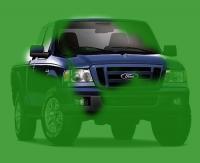“There are 11 million alternative fuel autos on the road today,” exclaims The Alliance for Automobile Manufacturers (AAM) website.
Yes, this is the same Alliance of Automobile Manufacturers that is heading up a lawsuit against the State of California over proposed stricter greenhouse gas emissions standards for automobiles. And yes, this is the same Alliance that is fronting similar lawsuits in other States around the country.
With such a long history of fighting emission standards, it’s no wonder why a headline like “11 million alternative fuel autos on the road today” would jump out at anyone familiar with the Alliance and their not-so-environmentally friendly activities.
While technically there may be 11 million “alternative fuel autos” on the road in the United States today, that doesn’t necessarily mean much. According to the AAM itself, there are 11 million alternative fuel autos on the road, with about 5 million of these being something called a “Flex Fuel Vehicle” (FFV). These FFV‘s can run on a mixture of 85% ethanol and 15% conventional gasoline.
But they can also run on 100% gasoline. Hence the term “flex.”
The AAM is correct to call the FFV an alternative fuel vehicle. The Alternative Motor Fuels Act was passed in 1988 as a means of promoting the use of ethanol and creating a viable market for consumer level ethanol use and under that act the flex fuel vehicle is defined as an “alternative fuel auto.” Since 1988, automakers have embraced the flex-fuel engine because it only adds an additional $200 to the cost of manufacturing, and in return the automakers can claim higher fuel efficiency ratings.
Under the Corporate Average Fuel Economy (CAFE) rating system, the flex fuel engine is assumed to run on ethanol 50% of the time. For example, under the CAFE formula a 2007 Tahoe truck would receive a CAFE rating of 21 miles-per-gallon, but a 2007 Tahoe truck with an FFV engine would be rated at 35 mpg.
However, and here’s the catch, there are currently only about 1,100 ethanol 85 fueling stations in the United States, so most FFV engines will never run on ethanol fuel. On paper, that Tahoe gets 35 mpg, but if you live in one of the 10 states that doesn’t offer Ethanol 85, you’re out of luck. But all is not lost, the automaker still gets a gold star for fuel efficiency.
So when the AAM states that there are 11 million “alternative fuel autos” on the road, it actually means there are 11 million autos on the road that are by definition “alternative fuel autos,” but significantly fewer that actually run on alternative fuel.
Of course a tag line like that is far less sexy and definitely not as green.
The Automobile Alliance describes itself as “a leading advocacy group for the automobile industry on a range of public policy issues.”
Members of the Alliance include Ford Motor Company, Toyota, DaimlerChrysler, BMW and Mazda.
Subscribe to our newsletter
Stay up to date with DeSmog news and alerts






